Ringgit has been dropping like a rock since February this year, depreciating from RM4.24 to RM4.69 against the U.S. dollar. If it breaks the RM4.75 level recorded in November 2022 under the previous backdoor government of Ismail Sabri, all hell will break loose. The currency made a stunning recovery from RM4.75 to RM4.24 after Anwar Ibrahim became the 10th Prime Minister of Malaysia.
So, what is happening to the currency that despite commanding two-thirds majority in the parliament, the Anwar Administration appears to be fighting a losing battle against the weakening Ringgit? Telling the world that Malaysia’s economic fundamentals are strong will not convince investors. Reducing the stamp duty rate for shares traded in the stock market by 0.05% will not win investors’ interest.
Over the week-end, PM Anwar, who is also Finance Minister, shared his thought about declining Ringgit with students at a local university. He blames the currency depreciation partly on the country’s low interest rates, arguing that small and medium companies will be affected if the government raised the interest rates too much. Therefore, the government is still seeking a balance.
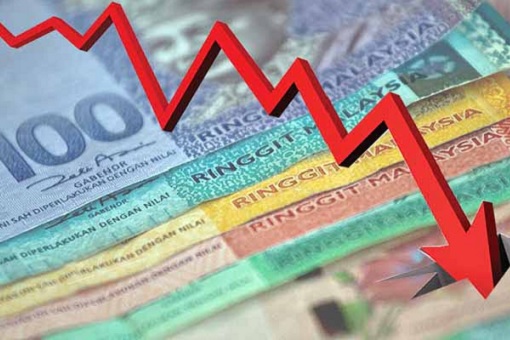
The premier said – “If I have RM1 million, I want to put it in a bank. I have a choice of Malaysia, Singapore and Indonesia. Singapore and Indonesia have high interest rates. So, I choose to save it outside (Indonesia and Singapore). That is our problem now”. As of June, Singapore and Indonesia’s interest rates are 3.58% and 5.75% respectively, whilst Malaysia’s is merely 3%.
Anwar’s argument, however, was only half truths. If the high interest rate is the prime factor determining the strength of a currency, Singapore Dollar would have depreciated against the Indonesian Rupiah. Likewise, people would have dumped the Singaporean currency in favour of the Vietnamese Dong (interest rate 4.5%) and the Philippines Peso (interest rate 6.25%).
But in certain country like the United Kingdom, raising interest rate indeed could boost its currency. On June 22, the British government unexpectedly raised its bank rate by an incredible 0.5 percentage point to 5% to tackle stubbornly high inflation. As a result of the increased rates for the 13th consecutive time to the highest level since 2008, the British Pound skyrockets.
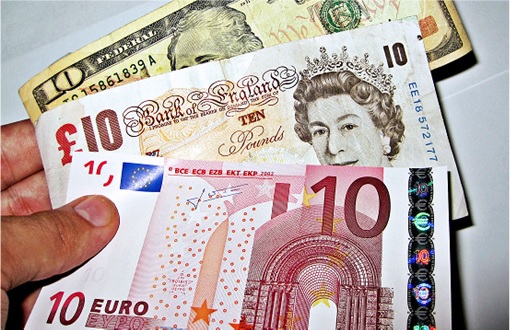
Of course, the Bank of England had no choice because the country’s inflation remained unchanged at 8.7% in May. But high interest rate could risk tipping Britain’s economy into recession, as higher borrowing costs reduce households’ disposable income and crush consumer demand for goods and services. The central bank might raise its base rate above 6% before Christmas.
In Turkey, its central bank jacked up the country’s key interest rate – almost doubling it from 8.5% to 15%. Even then, analysts have criticized the 650 basis point rate rise as insufficient, and was expecting a 1,150 basis point hike to 20%. Yet, the Turkish Lira plunged to around 24.1 against the U.S. dollar – a record low. In the last 5 years, the currency lost 80% of its value against the greenback.
Clearly, the problem with Britain was inflation, whilst Turkey has combination problems of inflation, macroeconomic, monetary policies, leadership, politics and whatnot. The Turkish inflation was at jaw-dropping 39.6% in May 2023 alone, after hitting 85.51% in October 2022 – the highest ever recorded. It’s not rocket science that investors have more confidence in the Pound than the Lira.
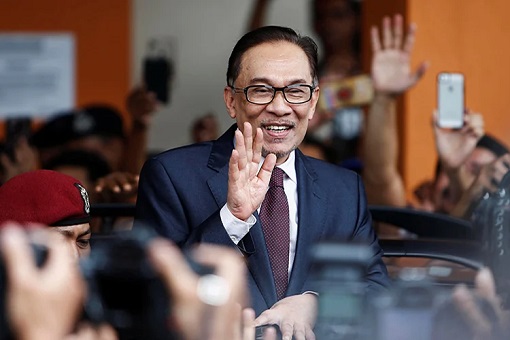
Exchange rates, hence the strength of currencies, are determined by a few factors such as interest rates, inflation rates, economic growth, political stability, government intervention, government debt and investors’ confidence. PM Anwar said the country’s economic growth continued to rise in the first quarter of this year, surpassing that of Singapore, Indonesia and China.
In fact, he bragged that the government has attracted investments worth RM71 billion in the first four months of 2023. In the same breath, however, Anwar admitted that it would not be easy to attract more investments into the country because foreign investors still have a perception of instability in the country following rumours that there might be a change of government.
Yes, foreign investors are not stupid. Despite RM71 billion investments and the two-thirds majority enjoyed by Anwar-led unity government, the fact remains that the current administration is under constant threat and sabotage by the Opposition Perikatan Nasional. Undermining the government stability, the extremist opposition continues to spew racist hatred, xenophobia and all forms of bigotry.

Malaysian Islamic Party (PAS – Parti Islam Se-Malaysia) and Bersatu (Malaysian United Indigenous Party) would rather destroy the country using racial and religious cards than becoming a responsible opposition after failing to form the government after the Nov 2022 General Election. Gullible young Malay voters were bribed and radicalized to blindly vote along racial lines.
After the 15th national polls, PAS president Hadi Awang and Bersatu president Muhyiddin Yassin have doubled down in spewing racist statements to brainwash and instigate Malays under the pretext that the community has lost power to non-Malays. The intention was to overthrow the government by spooking investors with the perception that Anwar government could collapse anytime.
To make matters worse, the Anwar’s unity government has so far refused to arrest, let alone prosecute the provocateurs and traitors who were threatening national security. Exactly why should foreign investors pump money into Malaysia knowing there would be policy changes if the radical Islamic political parties succeeded in forming yet another backdoor regime?
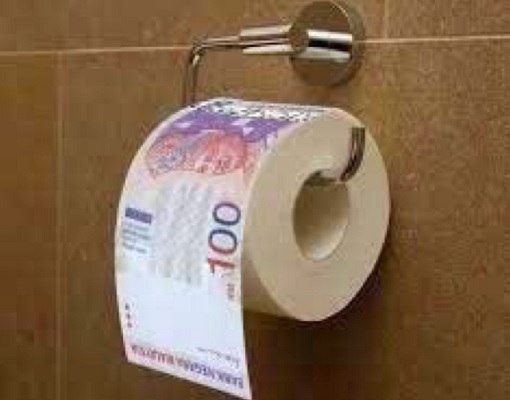
The perception of political instability is the prime factor why the Ringgit goes down the toilet bowl. It was already bad that Anwar government inherits a whopping RM1.5 trillion national debt from previous corrupt and incompetent administrations. It now becomes worse when investors – both foreign and domestic – adopt a “wait and see” approach over the country’s investment climate.
Even if the Bank Negara Malaysia (Central Bank) wishes to intervene in the foreign exchange market to prop up the local currency, it has very limited spare funds to do so, thanks to incarcerated former Prime Minister Najib Razak’s marvellous debt accumulation to RM1 trillion. The country has only US$113 billion in foreign reserves as at June 15, 2023.
Make no mistake – the local currency could plunge beyond RM4.75 if Perikatan Nasional performs better than expected in the upcoming six state elections. Investors will dump the Ringgit like a plague in anticipation of a fragile Unity Government that could collapse anytime. As the opposition is obsessed with toppling Anwar government, investors flee to somewhere else.

Spooking investors with political coup to topple a democratically elected government is the secret recipe for Ringgit to go south. Radicalizing Malays with violent Islamic extremism to the extent of Talibanize the country is certainly the formula for local currency to go worthless. The best part is those voters had no idea that their support for extremism contributes to weakening Ringgit.
It didn’t help that China’s economic slowdown will reduce demand for Malaysian products, including electronics and palm oil. In the four months between January and April, Malaysian exports to China dropped by 11.13%. April alone saw both countries’s trades fell 17.4%. China has been Malaysia’s largest trading partner for 14 consecutive years – hitting record US$203.6 billion (RM949 billion) in 2022.
Between Malaysian Ringgit and Singaporean Dollar, obviously neighbouring country’s economy has a stronger fundamentals. In fact, the stronger Singapore dollar against the Ringgit is due to investors’ confidence in the Singaporean economy, which is supported by its AAA credit rating (Malaysia is rated BBB+), substantial foreign-exchange reserves and solid current account surplus.
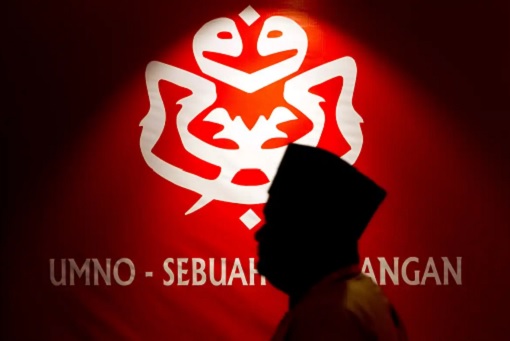
While Singapore practices good governance, Malaysia – even during the Anwar Ibrahim era as deputy prime minister – has been in self-destruction based on racism and discrimination policy like the NEP (New Economic Policy) derived from “Ketuanan Melayu”, the ideology of Malay supremacy espoused by UMNO (United Malays National Organization).
Malaysia’s policy saw brain drain in the form of hundreds of thousands of technical skills went through a large scale migration to other countries. The education system itself was a joke. At least 90,000 of the 373,974 candidates who sat for the Sijil Pelajaran Malaysia (SPM) examination – equivalent to “O” Level – last year had failed the Mathematics paper.
According to some teachers who used to mark SPM exam papers, the passing score could be as low as 20% especially for subjects like Mathematics and Science in order to make students of certain ethnic happy. Even then, some 30,000 candidates who were registered did not sit for the SPM. It’s not surprising that the system produces unemployable graduates, and graduates with poor command in English.

The opportunity to work in advanced industries in Singapore, which promises better pay, career development and attractive lifestyle saw ethnic Chinese rushing to work there, attracted mainly by stronger currency. Meanwhile, unemployable graduates or SPM dropouts joined the gig economy as food delivery riders, making it even more difficult for the government to raise interest rates.
Like it or not, there’s no solution to boost the value of Ringgit till there’s internal structural reforms. Once the country possesses the necessary favourable investment environment, the investors will naturally have confidence and flock in – boosting the local currency. In reality, Anwar does not have the tools or the political will to fix the problems because the political impact involves race and religion.
Other Articles That May Interest You …
- Anwar The 10th PM – How He Watches With Popcorn While Zahid Plays & Traps Power-Crazy Muhyiddin & Hadi
- Muhyiddin Upset His “115 SD” Rejected – Here’s Why Anwar Still The Favourite To Grab The 10th Prime Minister
- Anything But Racist Bigots PAS – Anwar Most Likely The 10th PM After Muhyiddin Lied & GPS Internal Revolt
- Hung Parliament & Religious Extremist Govt – Stock Market & Ringgit Set To Crash Tomorrow
- A Summary Of How People Suffered & Agong Insulted During 33-Month Backdoor Governments Of PN & BN
- Chicken Eggs Shortage – Why Prices Of Everything Will Skyrocket If UMNO Wins The General Election
- Top-22 Achievements During The 22-Month Administration That Pakatan Harapan Fails To Trumpet
- Top-10 Dumbest Things Sabri Government Said Or Done During & After The Massive Flood
- A Laughing Stock – When UMNO Thugs Nazri & Tajuddin Rejected By Switzerland And Indonesia As Ambassadors
- PAS “Iranian Revolution” In Malaysia – Why Sultan Selangor Bans Politicians From Preaching Islam
- New Wave!! – Power Hungry Muhyiddin Is Responsible For The Spread Of Covid-19 From Sabah To The Entire Country

|
|
June 27th, 2023 by financetwitter
|


|

|

|

|

|

|




























Anwar doesn’t understand economics.
But then neither does Mullah Hardy. If he does, the first thing he should go against is “Islamic banking” which is makes a mockery of the teachings of Islam. That said, few in Malaysia is versed in the teachings of Islam, while being dumb about economics, which is all our politicians, is additionally lethal.
I can forgive Mullah Hardy, he’s not at all bright. Mullah Hardy thinks giving the “pendatangs” the right to settle in Malaysia is being kind. It is more the chosen wants being fcuking useless giving in to the colonials and not fighting them so that there wouldn’t have been the disgrace of having to agree with the British arrangement. It was sheer uselessness and gross inability to get a spine to stand up and fight the genuine patriots who very bravely took up arms against the colonial order that’s led to today’s twisting of words to attempts to deny the “pendatangs” their rights. So technically, those who bark out loud sold their fcuking cheap souls.
But then I can’t and shouldn’t forgive anyone now who palms off the pig manure called “Don’t spook the Malays”. If the chosen wants are honourable, they should honour the agreement with the Brits and all parties, stop barking any pig shiite and put up with the Chinese and Indians.